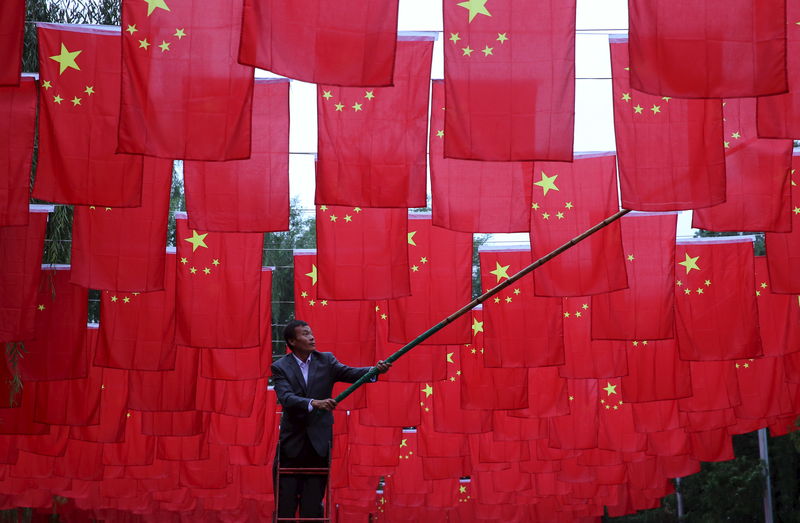Stock market today: S&P 500 climbs as health care, tech gain; Nvidia earnings loom
Investing.com - China has said it will take resolute and effective measures to respond to a further 50% tariff from U.S. President Donald Trump.
Although it has deemed Trump's tariffs "blackmail" and said it does not want a trade war with the U.S., China has promised to fight back against Washington.
"There are no winners in a trade war," China's commerce ministry said in a statement quoted by Reuters. "China does not want one, but the government will never allow the legitimate rights and interests of the Chinese people to be harmed or taken away."
A Chinese foreign ministry spokesperson called Trump's tariffs a form of "bullying," adding that, if the U.S. wants to solve trade problems, it should adopt an attitude of respect and equality.
Trump's latest levies, which came into effect on Wednesday, push the U.S. tariff rate on China up to 104%. Trump imposed 20% duties over the country's role in the trade of the illicit drug fentanyl earlier this year, and announced a 34% additional so-called "reciprocal" levy on the world's second largest economy last week.
China later vowed to retaliate against the action, prompting Trump to promise yet another 50% tariff on Beijing.
The 104% tariff that has now kicked in comes on top of levies that were in place before Trump returned to the White House for a second term. In Trump's first stint in power, he slapped tariffs on a wide-ranging list of goods from China -- a decision that was later increased during the Biden administration.
Top leaders from China are due to meet to discuss potential actions to help boost the country's economy and stabilize its capital markets as the trade spat with the U.S. escalates, Reuters reported, citing sources close to the matter.
Since Trump revealed plans for across-the-board tariffs at a White House Rose Garden event on April 2, equities around the world have cratered.
The benchmark S&P 500, in particular, has slid close to bear market territory -- typically defined as a 20% decline from a recent peak. On Tuesday, the index ended below 5,000 for the first time in nearly a year. It has now shed $5.83 trillion since Trump's April 2 tariff announcement -- logging the heaviest four days of losses since the S&P 500's creation in the 1950s.
Trump has broadly dismissed the market turmoil, arguing that it is necessary pain to overhaul perceived unfair trade imbalances. Traders have also flagged uncertainty around the outlook for the tariffs after Trump said they could be both "permanent" and a tool to persuade foreign countries to sign favorable trade agreements.
Speaking at the White House on Tuesday, Trump said "a lot of countries" are keen on making deals, noting that he anticipated China would look to make an agreement. Trump officials are due to speak with traditionally close U.S. trading partners South Korea and Japan, while Treasury Secretary Scott Bessent is set to meet with Vietnam's deputy prime minister on Wedesday.
(Reuters contributed reporting.)
